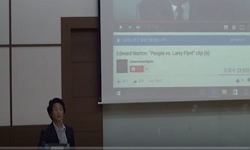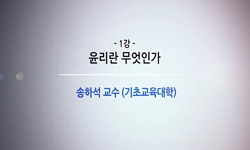This paper is an attempt to investigate, on the one hand, the limits of the criminal justice system, and, on the other hand, the efficacy of the community transmission of emotions through a narrator’s voice. Both of these themes appear prominently i...
http://chineseinput.net/에서 pinyin(병음)방식으로 중국어를 변환할 수 있습니다.
변환된 중국어를 복사하여 사용하시면 됩니다.
- 中文 을 입력하시려면 zhongwen을 입력하시고 space를누르시면됩니다.
- 北京 을 입력하시려면 beijing을 입력하시고 space를 누르시면 됩니다.

“Nature’s Law” and “the Hour of Feeling”: Wordsworth’s Critique of Criminal Justice in Lyrical Ballads
한글로보기https://www.riss.kr/link?id=A107340112
- 저자
- 발행기관
- 학술지명
- 권호사항
-
발행연도
2021
-
작성언어
English
- 주제어
-
등재정보
KCI등재
-
자료형태
학술저널
- 발행기관 URL
-
수록면
193-221(29쪽)
- 제공처
- 소장기관
-
0
상세조회 -
0
다운로드
부가정보
다국어 초록 (Multilingual Abstract)
This paper is an attempt to investigate, on the one hand, the limits of the criminal justice system, and, on the other hand, the efficacy of the community transmission of emotions through a narrator’s voice. Both of these themes appear prominently in two poems of the Lyrical Ballads (1800), “Andrew Jones” and “The Two Thieves”. While the speaker unreservedly abhors Andrew Jones, he shares with the whole community a warm affection for the petty criminals of “The Two Thieves.” In “Andrew Jones,” the narrator begins the poem with remarks of unbridled enmity for Jones and his children: since Jones shows no pity for a traveler with disabilities, snatching away a penny left for him, he deserves to be swept away from the neighborhood to the rough music of the press-gang. In contrast with the animus expressed towards Jones, the speaker of “The Two Thieves” is biased towards the eponymous reprobates, even though they continue to steal by means of wiles and deceptions. Well-known to the community, the two thieves are ninety-year-old Daniel and his three-year-old grandson. Yet the speaker blesses Old Daniel, his grandson and his daughter in the closing stanza, precisely because of the charitable virtue they plant in the hearts of spectators and neighbors. This paper seeks to argue that Wordsworth endeavors to represent the individuating process of the author, speaker, character and the reader in terms of their emotional engagement in the poetic critique of criminal justice. It is through the poetic texts that the poet deals with the question of emotional exchange and challenges the monolithic reduction of petty criminals into the objects of a penal code. In doing so, Wordsworth invites us to take part in a form of affective community that is constituted by author, speaker, character, and reader as an irreducible individual. Consequently, Wordsworth creates a new sense of justice by resisting the existing laws through his poetics of feelings as a site of contestation.
목차 (Table of Contents)
- Ⅰ. Introduction
- Ⅱ. The “press-gang” as a means of wartime criminal justice in “Andrew Jones”
- Ⅲ. Discretion and Pardoning in “The Two Thieves”
- Ⅳ. Conclusion
- Works Cited
- Ⅰ. Introduction
- Ⅱ. The “press-gang” as a means of wartime criminal justice in “Andrew Jones”
- Ⅲ. Discretion and Pardoning in “The Two Thieves”
- Ⅳ. Conclusion
- Works Cited
- Abstract
동일학술지(권/호) 다른 논문
-
- 19세기영어권문학회
- 김성중(Sung-Joong Kim)
- 2021
- KCI등재
-
허먼 멜빌의 「베니토 세리노」의 유럽중심주의 담론과 서사적 해체
- 19세기영어권문학회
- 서주희(Joohee Seo)
- 2021
- KCI등재
-
르 파누의 『카밀라』에서 레즈비언 뱀파이어와 어머니의 귀환
- 19세기영어권문학회
- 손영희(Younghee Son)
- 2021
- KCI등재
-
- 19세기영어권문학회
- 장기윤(Ki Yoon Jang)
- 2021
- KCI등재




 DBpia
DBpia







